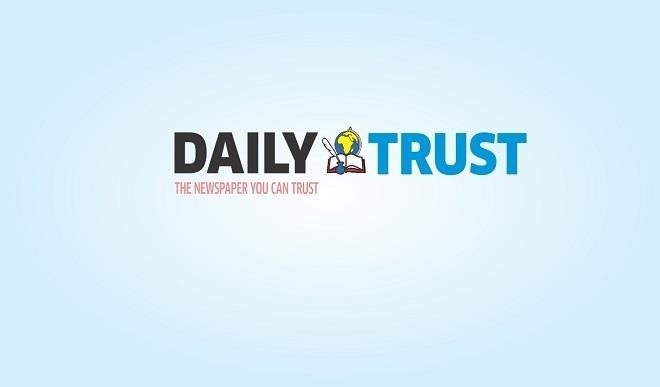In Madina, everyone speaks Hausa
As the patient left the doctor’s office and walked to the pharmacy, he heard the pharmacist saying, “safe, rana, yanma” as he dispensed medicine to another patient. The patient, a first timer in Madina, looked at the pharmacist who was speaking Hausa to confirm that he’s indeed Arab, not Hausa or even a Nigerian. He […]


As the patient left the doctor’s office and walked to the pharmacy, he heard the pharmacist saying, “safe, rana, yanma” as he dispensed medicine to another patient.
The patient, a first timer in Madina, looked at the pharmacist who was speaking Hausa to confirm that he’s indeed Arab, not Hausa or even a Nigerian. He therefore could no longer hold back his question: “Where did you learn Hausa?”
Earlier, when the man at the reception asked, “Sunanka (your name)?” he thought he didn’t hear him correctly. And when the receptionist didn’t get the full name and asked “babanka (your father’s name)?” the patient still didn’t know what was going on.
Then when he complained to the doctor that he was a frequent visitor to the toilet, the doctor asked: “basir?”
Basir!
He thought only Nigerians suffered from basir. How did this white man know about basir?
Also, when he told a doctor at another charity clinic in Madina about his fever, the doctor said, “kafa, bayana?” while demonstrating by touching his leg and back. Even though he said “bayana” instead of “bayanka,” the patient got the message that the doctor wanted to know if body pain was also one of his symptoms.
Now, the pharmacist is compounding his confusion by speaking, “biyu biyu, uku uku, shikenan.” So he repeated his question, “Did you learn Hausa here?”
It turned out that the hospital has a secret. The pharmacist smiled in understanding and reached up to show the Nigerian a chart of all the languages of the world that he’s likely to use to dispense his medicine and explain the dosage to the patients who often speak no word of Arabic.
On that chart there’s Hausa equivalent for morning, afternoon, evening and the numbers. But there are same words for other languages too. However, because Nigerians are frequent visitors to the clinic, the staff get a lot of practice speaking Hausa.
Then it all came together. Like a child who just discovered the meaning of the word “progress” and started seeing progress everywhere, this pilgrim began recalling all the Hausa he’d heard since arriving Madina.
The fruit seller for example said “riyal goma” for a kilogram of his grapes. Then there’s little Muhammad who sells jallabiya shouting, “riyal shabiyar!”
However, the first Hausa he heard by a non African was from the hotel porter who said “ba kyau” when a key did not open his assigned room.
But do these people truly understand Hausa? And if the clinic had a neat system of learning the language, do others such as the merchants have their own systems too? He wanders through the malls and the streets to check out the evidence.
As he passed by one charismatic grocery shop owner, he heard from him what would be considered advanced Hausa, “Al Hajj Muhammad, yi haka.” Meaning, “Alhaji Muhammad come this way. Come to my shop.”
So he started a conversation with the grocer. But the conversation couldn’t proceed beyond the prices for his products and what he had spoken so far.
And while he was searching for food that wouldn’t upset his stomach, he happened on Muhammad Adil, who showed him a flyer and pointed to “shinkafa kaza.”
When he tried to speak more Hausa, he discovered that not only did Muhammad not understand Hausa, he also couldn’t speak a word of English.
Yet, he was amazed that these people could look at you and speak an appropriate Hausa word and you would instantly understand them. He also marveled at the fact that they guessed correctly most of the time that you speak Hausa without even asking you.
But is it only Hausa that they know? He soon discovered that, like the clinic staff, the merchants understand other languages too. “Lima belas,” a nine-year old cloth seller said in Malay. And for anyone familiar with the languages, you could hear them shouting in Punjab, English, French and other languages.
Of course sometimes their assessment of what language to speak with an individual returns false positives. That is, thinking that you’re Hausa when you are not.
For example, one day a Yoruba man stopped by Muhammad, the jallabiya seller’s shop, and wanted to know how much he sold the one for which he showed interest. While Muhammad shouted “riyal sha biyar” the Nigerian kept shouting, “how much?”
Therefore, it’s not a question of whether they understand Hausa. The answer is that these people learn Hausa as much as they need to do their work and as appropriate to the occasion.
And it’s not only Hausa; they also do it in other languages. Whether the effort is driven by profit or by charity (as the case of the clinic which offers free consultation and medicine), their methods seem to work for them – and their customers. They get the job done. They communicate.
So leave your smattering Arabic in Nigeria. The people of Madina speak your language.
